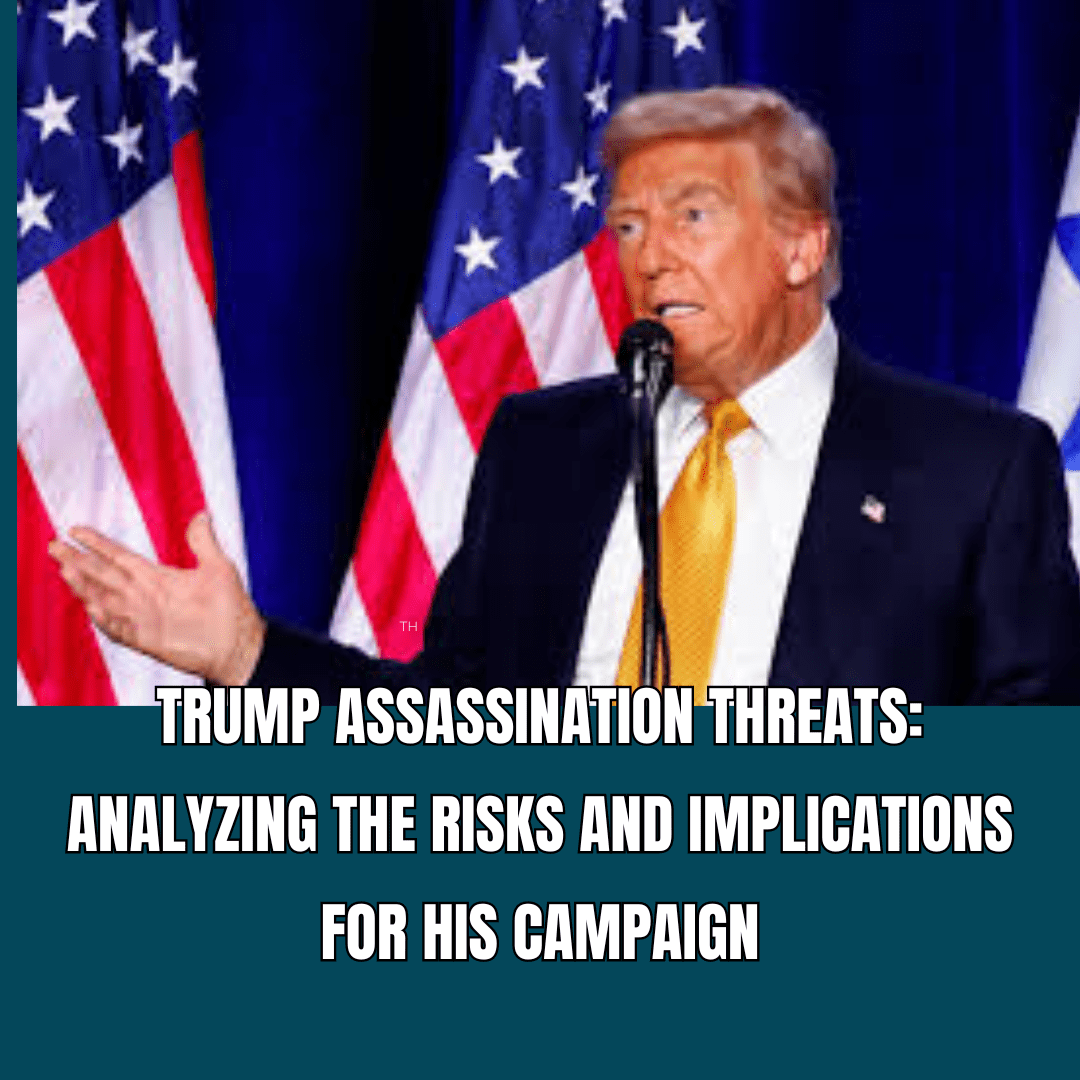Physical Address
304 North Cardinal St.
Dorchester Center, MA 02124

In recent weeks, the landscape of American politics has become increasingly fraught with tension, particularly for Donald Trump. The U.S. intelligence community has issued alarming warnings regarding Trump assassination threats, signaling a serious escalation in the risks associated with his public presence. As a former president and a leading candidate for the upcoming 2024 election, Trump finds himself navigating a complex web of political intrigue, security concerns, and public sentiment.
This article delves into the nature of these threats, their implications for Trump’s campaign, and the broader context of American political discourse. The topic not only touches on Trump’s safety but also raises critical questions about the state of democracy in the United States.
Recent reports have indicated that U.S. intelligence agencies have intercepted communications suggesting that Iranian-affiliated groups are considering plots against Trump. This development has sent shockwaves through the political sphere, as the idea of Trump assassination threats poses not just a personal risk to the former president but also impacts national security discussions.
The seriousness of these warnings cannot be overstated. The mention of Iran in connection to assassination plots evokes memories of high-stakes geopolitical conflicts and emphasizes the potential for international ramifications. Trump has long been a controversial figure, and these threats only serve to amplify the already charged atmosphere surrounding his campaign.
The political climate in the United States has been increasingly polarized, and the emergence of Trump assassination threats has intensified these divisions. For many of Trump’s supporters, these threats reinforce the narrative that he is a target of a politically motivated “deep state.” This idea resonates deeply with his base, who see him as a bulwark against perceived corruption and overreach by the establishment.
Conversely, critics argue that Trump’s rhetoric surrounding these threats is designed to distract from his policy failures and mismanagement. This narrative emphasizes the need for a political leader who can unite rather than divide, and Trump’s handling of assassination threats may be viewed as either courageous or reckless, depending on one’s political perspective.
Public sentiment regarding Trump assassination threats is a mixed bag. On one hand, supporters may see these threats as confirmation of their belief that Trump is under constant attack from various forces, both domestic and foreign. This perception can galvanize his base, leading to increased voter turnout and enthusiasm as they rally around the idea of protecting their candidate.
On the other hand, undecided voters or those on the fence may view the situation differently. The existence of Trump assassination threats could lead them to question his ability to effectively lead the nation amid such instability. If voters perceive Trump as being overly focused on personal security rather than on pressing national issues—like the economy, healthcare, or education—they may be less inclined to support him in the upcoming election.
In response to the Trump assassination threats, Trump has taken several steps to bolster his security. His team has increased coordination with law enforcement and intelligence agencies to ensure that any credible threats are mitigated promptly. Trump’s approach to discussing these threats publicly has also been strategic; by acknowledging them, he signals to his supporters that he is aware of the dangers he faces, which can help strengthen their allegiance to him.
Moreover, Trump’s messaging often portrays him as a victim of these threats, tapping into the emotions of fear and rallying his base around a narrative of resilience. He has previously stated that such threats are part of the territory when standing up against powerful interests, framing his candidacy as a battle against systemic forces that wish to silence him.
The public reaction to Trump assassination threats has been varied. Supporters often see these threats as validation of their fears about the political landscape. They view Trump as someone willing to stand up against not only domestic adversaries but also foreign ones, reinforcing the idea that he is a fighter. This perception can be a powerful motivator for voter engagement, especially among those who feel disillusioned with traditional political norms.
In contrast, opponents of Trump may find the discussion around these threats to be an opportunistic tactic, a way to divert attention from the issues they believe he has mishandled. This divide reflects a broader schism in American politics, where the interpretation of events is often colored by ideological beliefs. The reactions to Trump assassination threats serve as a litmus test for the broader political divisions in the country.
The media’s coverage of Trump assassination threats plays a significant role in shaping public perception. Sensationalized headlines and dramatic reporting can amplify fears and concerns, sometimes leading to a distorted understanding of the actual risks involved. The way news outlets frame these threats can influence voter sentiment, either fueling support for Trump or contributing to skepticism about his capabilities as a leader.
Furthermore, social media platforms amplify this effect, allowing misinformation and sensational stories to spread rapidly. Trump’s supporters and opponents alike use social media to express their views, creating echo chambers that reinforce pre-existing beliefs. The rapid dissemination of information—both accurate and misleading—means that Trump assassination threats will continue to be a topic of heated debate and discussion.

As the 2024 presidential election approaches, the narrative surrounding Trump assassination threats will likely continue to evolve. The former president’s ability to navigate these challenges while maintaining his support base will be crucial for his campaign’s success. Whether these threats galvanize his supporters or create doubts among undecided voters remains to be seen.
In conclusion, Trump assassination threats underscore not only the personal risks faced by political leaders but also the broader challenges that define contemporary American politics. As the campaign unfolds, the implications of these threats will undoubtedly resonate throughout the political landscape, shaping the future of Trump’s candidacy and the national conversation.